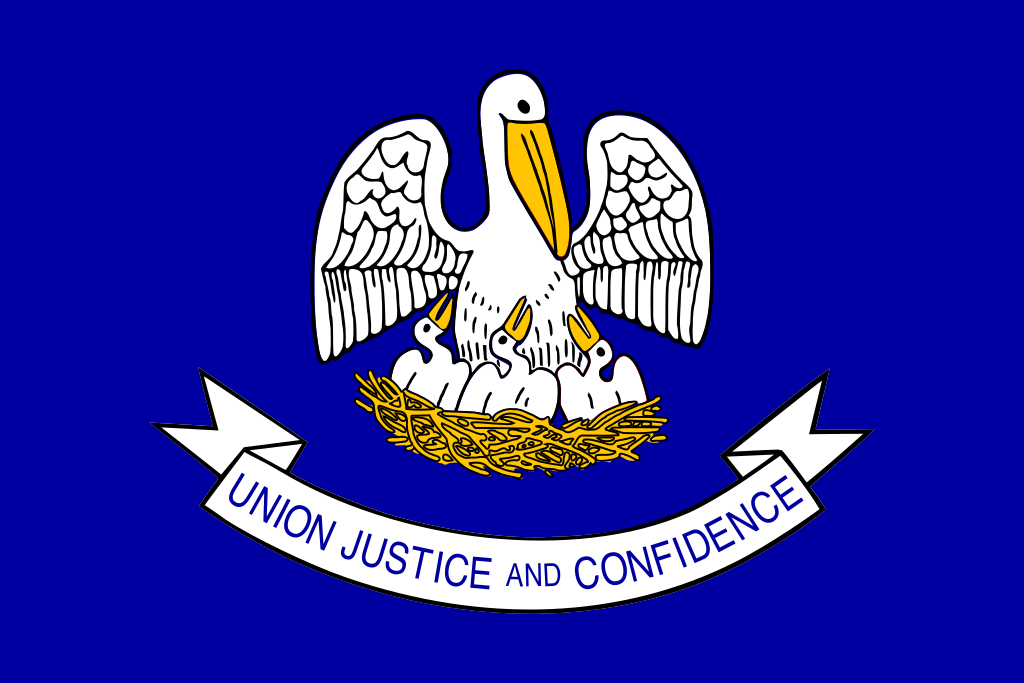In October, Louisiana voters will decide on a constitutional amendment that would provide in the state constitution that "the freedom to worship in a church or other place of worship is a fundamental right that is worthy of the highest order of protection." Under the amendment, a legal challenge brought against a state or a local government action for conflicting with this right would be required to be examined by a court with strict scrutiny. This means that a government entity could only pass a law or take an action that conflicts with the right to worship if it can show that the law or action is necessary to achieve a compelling governmental interest and is narrowly tailored to achieve that interest.
The Louisiana Constitution currently includes the right to freedom of religion in Section 8 of Article I. The amendment would provide that the existing constitutional right to religious freedom, granted by Section 8 of Article I of the Louisiana Constitution, "shall not be limited to the fundamental right to worship in a church or other place of worship."
This amendment was introduced as Senate Bill 63. It was passed unanimously in the Senate on May 2, 2023. The House passed the bill on May 30, 2023, by a vote of 86-13 with six members absent. In the House, all 69 Republican representatives and one Independent representative voted in favor; while 16 Democratic representatives voted in favor and 13 voted against the amendment.
Legislative sponsor Sen. Beth Mizell (R), said, "In the latest action that we went through with the pandemic, churches were the last gathering place that were allowed to open. This bill attempts to affirm a right that was put in place at our founding which is the freedom of worship."
Pastor John Raymond of New Horizon Church in Slidell, Louisiana, said, "The freedom to peacefully assemble and the freedom of religious expression were casualties of war during COVID-19. While some may consider our freedom of religious expression and our right to worship with our spiritual family an optional privilege, I urge you to recognize that it is an absolute right and must never again be compromised in times of crisis."
Governor John Bel Edwards (D) issued a stay-at-home order for Louisiana in March 2020 that limited public or private gatherings of more than 50 people, and later decreased the limit to 10 people. Reverend Tony Spell was charged with six misdemeanor citations for violating the stay-at-home orders in April 2020 after holding religious gatherings at his church, Life Tabernacle Church, in Baton Rouge. Spell challenged his citations and alleged that his first amendment rights were violated by the stay-at-home order. On May 13, 2022, the Louisiana Supreme Court dropped the charges against Rev. Spell, in a 5-2 ruling, in which the court held that the executive orders violated Spell's right to exercise religion and do not survive the test of strict scrutiny, and were therefore unconstitutional. Justice William J. Crane wrote in the majority opinion, "A public health emergency does not relegate the First Amendment to a proposition or allow violations thereof to be judged on a sliding scale of constitutionality. The infringement of the fundamental right of the free exercise of religion, whether in times of crisis or calm, must always be strictly scrutinized by our courts.”
The New Orleans Secular Humanist Association wrote a letter opposing the amendment, stating, "What the 'highest order of protection' entails is unclear, but one might assume that the First Amendment in the U.S. Constitution is about as high as an order of legal protection could get. The only issue that this might be relevant to is that of government restrictions on public gatherings for health (such as pandemics) or other public safety concerns — but I'm sure Mizell would not risk the wellbeing of her fellow citizens for the sake of going to church for a few days. I am also sure Mizell is sincere about her dedication and devotion to this ideal and to her faith, but at the same time knows suggesting this vague, redundant wording to our constitution will be well-received by, and strengthen the loyalty of, her constituents as lagniappe."
Related ballot measures arising in response to the coronavirus pandemic include Texas Proposition 3 of 2021, which amended the state constitution to prohibit the state or any political subdivision from enacting a law, rule, order, or proclamation that limits religious services or organizations. The amendment was approved with 62.42% of voters in favor and 37.85% of voters opposed. Additionally, in 2022, Arkansas voters rejected Issue 3, which would have amended the state constitution to provide that "government shall not burden a person's freedom of religion even if the burden results from a rule of general applicability."
A total of 56 constitutional amendments appeared on the statewide ballot in Louisiana during odd-numbered years from 1999 through 2021. Of the 56 amendments, 37 (67.27%) were approved and 19 (34.54%) were defeated.
Additional reading:



